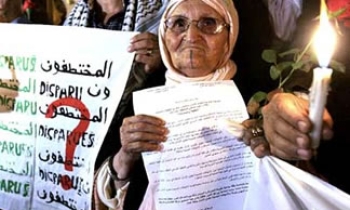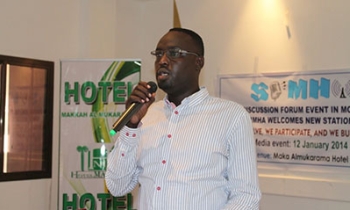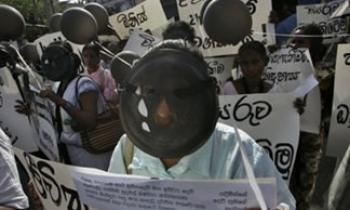(April 25, 2006) -- Journalists are reviled by many for alleged negativism and over-focus on bad news in Iraq. Or perhaps the problem is: Their employers are just trying to do it on the cheap. Ironically, the same media that criticizes the U.S. for sending too few troops to stabilize Iraq send too few reporters to cover much more than the dramatic bombings around Baghdad.
"I hope we keep out of the post-Vietnam thing that the press lost the war," Joe Galloway, soon to retire military editor for Knight Ridder, recently told me in an interview. But discrepancies in what’s reported, or an imbalance, are daily highlighted by military bloggers in Iraq and conservative commentators here at home.
If truth is journalism’s goal, cheapness within journalism undermines it. Embedded reporter Paul McLeary wrote in Columbia Journalism Review not long ago, "In Iraq, the untold stories pile up, one by one by one," because "there just aren’t enough of them [journalists] to give the conflict its due."
I turned to Joe Galloway’s 41years of experience in military reporting to see what can improve military-press relations. Some 692 journalists embedded during the invasion of Iraq. Interviews by the Institute for Defense Analysis reported, "The participants’ overall assessment was that it was successful and that it benefited the military, the media, the public, and the military families." Yet, the program has withered to several dozen embeds today.
Why? Galloway says there’s "growing resistance from the military to [those] embeds" it considers negative. Meanwhile, the $30,000 or more per month (above wages) cost of supporting reporters in Iraq is more than most media organizations want to spend, even though this is a major war and more important than many other beats.
Media bureaus in Baghdad now operate largely through inexpensive Iraqi stringers. I asked Galloway how such Iraqis are vetted for reliability. Galloway said that in the case of Knight Ridder, the bureau chief is fluent in Arabic as her primary check.
Perceived danger is important in the reluctance of reporters to get out and about. Most reporters in Iraq stay close to Baghdad, and that’s where the bloody news and contentious politics are, often staged for their coverage. Articles about boring days patrolling peacefully in other 15 provinces, or of Iraqis rebuilding, are not considered as newsworthy.
Two American journalists have been killed from 2003 to 2006. Sig Christenson, military reporter for The San Antonio Express-News and president of the Military Reporters and Editors, comments: "Everybody who goes over there, they’ve got families back at home .It isn’t easy for them to pack their bags and get on a plane and leave knowing how dangerous it is over there." Yet, American media haven’t energetically sought better insurance to encourage more reporters to go, and reduce costs.
I asked Galloway what insurance exists for reporters. He said large media organizations self-insure several times salary, or seek a special insurance policy. Special risk policies for individual employers cost from $100-$200 per day for disability and death benefits of ten-times salary to a cap of $1-million. But insurance policies available to government-contractors through larger group underwriting cost a fraction of that. Reporters Without Borders negotiated special policies for European Union reporters.
Galloway said he never heard of any U.S. media association negotiating such favorable policies for journalists. I emailed Linda Foley, president of the Newspaper Guild, to ask whether the Guild was pursuing such insurance. She responded: "We have looked at sponsoring plans...but health and disability insurance is delivered almost exclusively through employers We have bargained with employers to provide these type of benefits, and some do." But surely other approaches could be attempted.
Training reduces danger and increases understanding military operations. In the fall and winter of 2002, over 100 journalists went through a one-week course with the military, preparing for possible action in Iraq. But after that, many media organizations grew nonchalant about that. Galloway told me about the highest levels of the military offering courses to journalists, but being rejected.
With many Americans suspicious of journalists, and journalists having their own fears to deal with, what can one expect from efforts by Galloway and others at the Military Reporters and Editors group to improve embedding? Galloway said more standards are needed to govern negotiations and relations with the military during embedding. That may be so, and fruitful. But the more fundamental problems of a reliable press, and more constructive cooperation between media and military, may rest in the media committing more "troops" to Iraq, with better training--and better insurance premiums.
Bruce Kesler (letters@editorandpublisher.com) writes for Democracy-Project.com, American Enterprise institute Online, and Augusta Free Press. Kesler, a Marine Corps Vietnam veteran, owns an employee benefits firm in Encinitas, CA.









